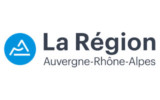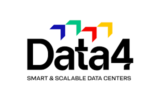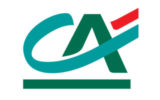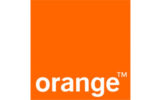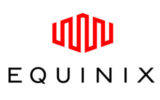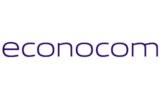Overview of French Sustainable IT Regulations
A number of regulations exist in France to reduce the environmental footprint of digital technology. Soumia Hattali, sustainable IT project manager at APL Data Center, offers a brief overview of current and forthcoming legislation.
1. The REEN Act
The Reduction of the Environmental Footprint of Digital Technology (REEN) Act of November 15, 2021 aims to make all market players, and local authorities in particular, more responsible for the environmental issues related to digital technology. Its aim is to guarantee the development of a sober, responsible, and ecologically virtuous digital sector in France. In particular, the REEN Act provides for:
- The creation of an observatory on the environmental impact of digital technology, by Ademe, Arcep and CSA.
- Limiting the renewal of digital devices: combating obsolescence, promoting repair and reconditioning, informing consumers, integrating the reparability index into public procurement policy, etc.
- The development of environmentally virtuous digital uses: creation of a general eco-design reference framework for digital services, consumer information on the environmental footprint of online video, etc.
- Promoting energy-efficient data centers and networks: stricter environmental conditions that will apply to lifting price caps, and to the reduced rate of the domestic tax on final electricity consumption (TICFE) applicable to data centers. Digital communications operators will need to publish key indicators summarizing their commitments to the environmental transition.
- Promoting a local responsible digital strategy: from 2025 onwards, municipal authorities and inter-municipal bodies with a population of over 50,000 will be required to draw up a responsible digital strategy.
2. The anti-waste law for a circular economy
The anti-waste law for a circular economy, known as the AGEC law, was passed on February 10, 2020. The introduction of the reparability index, incorporated in this law, was rolled out in January 2021 in relation to several types of electrical equipment, including mobile phones, notebook computers, and televisions. This law has several aims:
- To inform consumers about the ease of repairing the electrical appliances they buy.
- To raise awareness of programmed obsolescence.
- To encourage electronic and electrical appliance manufacturers to design appliances that are easier to repair.
This law also includes an obligation to raise consumer awareness, with Internet Service Providers (ISPs) and mobile operators required to inform consumers of the greenhouse gas emissions associated with their internet use and call consumption. This provision has been in force since January 2022.
3. The Ecodesign directive
The European Ecodesign Directive is a European regulation applying to products that consume energy or have an influence on energy consumption. It includes eco-design requirements applicable to servers and all data storage products hosted in private company server halls. To limit their environmental impact, the directive lays down rules relating to:
- The presence of substances that hinder circularity
- The efficient use of energy and resources
- Recycled content
- Availability of secure data destruction
- Availability of the latest firmware version
4. Tertiary Decree
The objective of the tertiary decree of July 23, 2019 (or tertiary eco-energy scheme) is to accelerate regional development and above all, reduce the energy consumption of France’s tertiary sector by at least 40% by 2030, 50% by 2040 and 60% by 2050, compared with the chosen reference year (between 2010 and 2019).
The decree concerns owners or operators of buildings hosting service activities (including data centers) in the private or public sector, with a surface area (or aggregate surface area) exceeding 1000 m². Those concerned are required to create an account and transmit their consumption data via the OPERAT platform, managed by Ademe.
The “Absolute Value III” method decree specifies energy consumption reduction targets, expressed in absolute value, for new tertiary sector activities such as shops, hotels and tourist rentals, catering, and data centers. It is currently being drafted and should be published shortly.
5. Corporate Sustainability Reporting Directive (CSRD)
From 2024, the new Corporate Sustainability Reporting Directive (CSRD) will come into effect. It will replace the Non-Financial Reporting Directive (NFRD) and oblige over 50,000 companies in Europe to report on the sustainability of their activities.
The Council of the European Union, the European Parliament, and the European Commission have established the following timetable:
- Declarations in 2025 on fiscal year 2024 for companies already subject to the non-financial reporting directive
- Declarations in 2026 on fiscal year 2025 for other large companies
- Declarations in 2027 on fiscal year 2026 for listed SMEs, with a two-year deferral option
- Declarations in 2029 on fiscal year 2028 for foreign companies with a European subsidiary
The CSRD specifies the information that companies must include in their annual non-financial performance report. In more practical terms, it requires them to monitor and publish an ESG (environmental, social, and governance) report in addition to their financial statements, to provide as much importance to the sustainable dimension of their activities as to the economic dimension.
To refine this list of non-financial standards, EFRAG (the European Financial Reporting Advisory Group) has proposed a number of ESG criteria, including carbon indicators.
Among the information that could be requested:
- Greenhouse gas (GHG) emissions assessment of the business
- Monitoring direct, indirect and other GHG emissions (scopes 1, 2 and 3)
- The economic intensity of greenhouse gas emissions, in tonnes of CO2 equivalent per million euros (tCO2e/€M)
- Global warming impact reduction strategy
Businesses need to anticipate and prepare for the CSRD by drawing up their carbon footprint.
6. Arcep: Decision No. 2022-2149 on the annual collection of environmental data
Decision No. 2022-2149 of the French regulatory authority for electronic communications, post and press distribution (Arcep), dated November 22, 2022, has led to the introduction of annual collection of environmental data from electronic communications operators, data center operators and device manufacturers (mobile phones, computers, connected televisions, etc).
Arcep’s decision aims to:
- Inform citizens, public players and all stakeholders about the environmental impact of the digital sector;
- Identify the activities of stakeholders likely to have an impact on the environment by developing indicators and reporting on their environmental impact;
- Monitor these indicators over time to assess the impact of environmental protection initiatives implemented by businesses.
Operators of data centers located in France, with annual sales in France equal to or above €10 million excluding tax, are required to respond to the Appendix B survey, which aims to collect the following data:
- The number of data centers and greenhouse gas emissions.
- The following nominative information: the name of the data center, the owner and operator of the data center, the date of commissioning of the data center, and the name of the municipality in which it is located.
- The total floor area of each of the data centers, the total floor area intended to house the data center server equipment, the maximum permissible electrical output of IT equipment in the data center server halls, the energy and power consumption of each data centers, the power consumption of their server equipment, and their volume of incoming and outgoing water depending on the type of water (drinking water from the local or fresh water network, seawater, wastewater).
- Quality-related information on water discharge conditions and areas, and on cooling systems.
This approach may be repeated in 2024. A public consultation was launched in the summer of 2023.
7. Energy Efficiency Directive
The Energy Efficiency Directive is a European directive that forms part of the “climate change package”. It sets targets Europe-wide for improving energy efficiency, with the aim of reducing final energy consumption across the EU by 11.7% in 2030, compared with the energy consumption forecasts for 2030 established in 2020.
Member States will be required to submit an indicative contribution to achieving this target. For France as a whole, this implies a reduction of 22 TWh over the 2024-2025 period, 25 TWh over the 2026-2027 period, and 32 TWh over the 2028-2030 period.
The principle of the primacy of energy efficiency must be taken into account as a fundamental principle in all sectors, including data centers. Data centers will be bound by:
- An obligation to use waste heat (unless technically or economically impossible) for any new installation or substantial renovation of a data center with a total capacity of over 1 MW.
- An obligation for data centers with a capacity of more than 500 kW to publish annual information on their energy performance (floor area of the data center, installed power, energy consumption, use of waste heat, etc.) from May 15, 2024.






